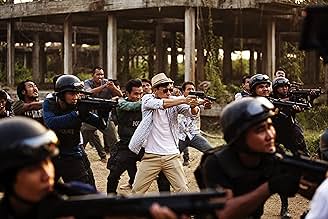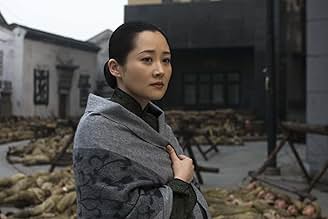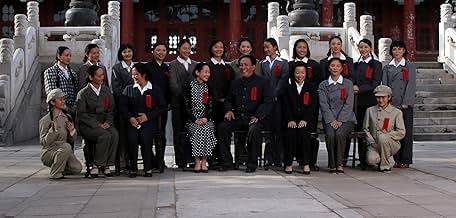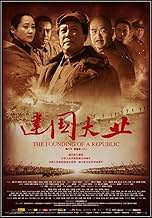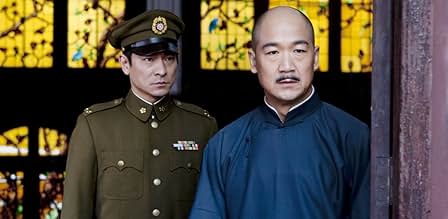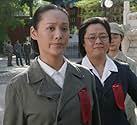Jian guo da ye
- 2009
- 2h 18min
La fundación de una república teje la apasionante historia de un hombre que luchó contra la tiranía de un gobernante.La fundación de una república teje la apasionante historia de un hombre que luchó contra la tiranía de un gobernante.La fundación de una república teje la apasionante historia de un hombre que luchó contra la tiranía de un gobernante.
- Premios
- 15 premios y 7 nominaciones en total
Argumento
¿Sabías que...?
- CuriosidadesThis movie was made to coincide with the 60th Anniversary of the Chinese Communist Party founding of China. This movie boasts the most number of China's movie stars in one movie. Many of the top stars were invited to star as leads, supporting characters, or just cameo in the movie, reportedly including some of the top Chinese stars like Jackie Chan and Jet Li, who only have one shot or one line in the movie.
- Citas
Li Ji-chen: I heard you intend to resign. Even if you were to resign, at least wait till after the capitulation ceremony in Nanjing. You helped defeat the Japanese. The ceremony can't do without a national hero like you.
Chen Shaokuan: If I don't resign, very soon I'll be blamed for the civil war. We fought against the country's enemy for 8 years. We've struggled, we've fought all, nothing more need be said. And now that we've won, we're still warring. Against whom ? Chinese people fighting Chinese people... this kind of job, I do not want.
In much of the propaganda that pervades previous characterizations of Chiang and his Nationalist forces, the Chinese Communists have tended to portray the Chinese civil war as one of black v white, good v evil, with victorious communist forces "liberating" the people from an evil regime. These words still appear today when it is advantageous to Chinese communists' interest. But in this film Chiang seems reflective, fair-minded and concerned over excesses in his own regime--a rather positive image.
Mao is treated to several revisions, appearing jovial, tolerant, and even permissive of some forms of capitalism, the latter something Mao never actually was in his revolutionary days. Indeed, there is little revolutionary fervor in Mao's dialogue in this film, a fervor which in real life permeated Mao's thinking. This seems deliberate, as these ideas would accord little with the current regime in Beijing. In one scene where Mao is shown in an avuncular, loving role with children, even though in real life Mao abandoned his children to pursue his broad revolutionary ambitions.
While KMT excesses are detailed, including several assassinations, there is absolutely no mention of CCP atrocities committed during the Chinese civil war. And, while KMT violations of the interim treaty between the two sides are highlighted, there is no mention of CCP violations of the same pre-civil war accords.
While most of the film is richly detailed in costumes and settings, the special effects are not very realistic, with several airplane scenes being utterly unconvincing as they are obvious CGI. The film is a product of Chinese film makers, but political interests in Beijing factored heavily in its production. I doubt that the movie will generate much interest outside of China.
- dmuel
- 26 oct 2009
- Enlace permanente
Selecciones populares
- How long is The Founding of a Republic?Con tecnología de Alexa
Detalles
- Fecha de lanzamiento
- Países de origen
- Idiomas
- Títulos en diferentes países
- The Founding of a Republic
- Localizaciones del rodaje
- Empresas productoras
- Ver más compañías en los créditos en IMDbPro
Taquilla
- Recaudación en todo el mundo
- 1.035.741 US$
- Duración2 horas 18 minutos
- Color
- Mezcla de sonido
- Relación de aspecto
- 2.35 : 1
Contribuir a esta página


